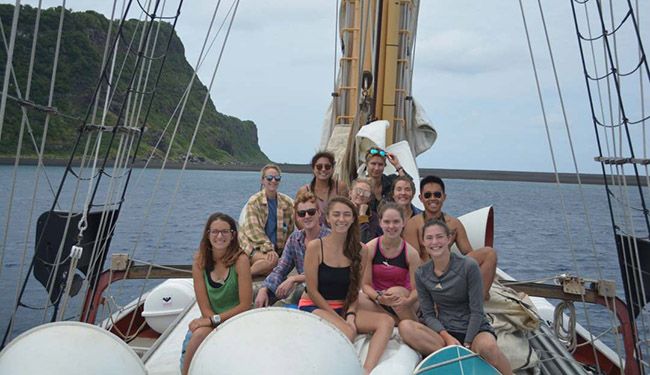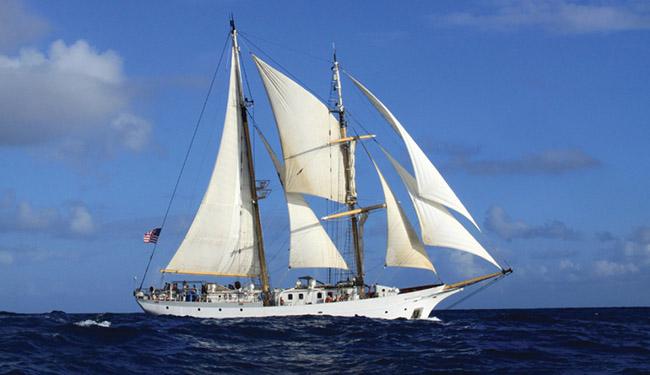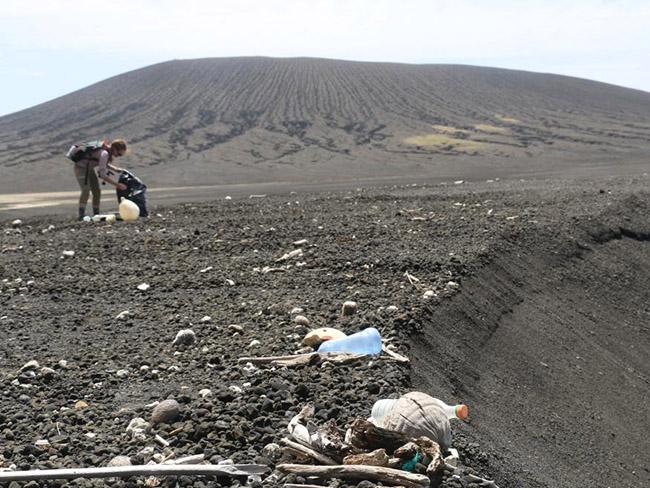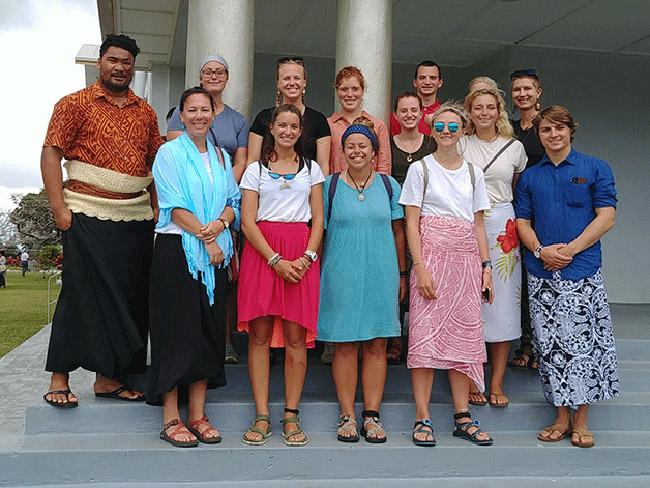
On a 12-week expedition to the Pacific Islands this month, NASA has partnered with the Tongan Ministry of the Environment and the Sea Education Association, to do field work on the recently formed volcanic island Hunga Tonga-Hunga Ha'apai.
The island formed in eruptions of 2014-15, is being studied as part of an ongoing joint research project between NASA's Goddard Space Flight Center and SEA.
NASA research scientist Dr. Dan Slayback with a group of 26 American undergraduate students have been collecting data on the new island that may offer scientists insight into the geology of Mars. The island’s evolution—its changing shape and erosion patterns—could hold clues to how water might have shaped similar features on Mars billions of years ago. NASA scientists said this was the first island formed on Earth since the availability of sub-meter resolution satellites including imaging radar and geodetic lidar altimetry.
Peni Vailea joined the field trip as a Tongan observer.
Their research activities on Hunga Tonga-Hunga Ha'apai included installing Tonga Geological Service plaques and satellite targets throughout the island to measure erosion, flying a drone to photograph and map the shape and depth of the crater lake for the first time, and collecting human/marine debris throughout the island. They found that despite being the newest landmass on Earth, the island is covered with plastic trash.
Sailing School Vessel
The group is aboard the tall ship ocean research vessel SSV Robert C. Seamans, a 134-foot Brigantine ship, which docked in Nuku‘alofa on Saturday October 12 after the group completed their field trip on Hunga Tonga-Hunga Ha'apai. The ship serves as their home, classroom and laboratory. Designated as a Sailing School Vessel, means that students sail as crew, not as passengers.
The students are participants in SEA Semester: Sustainability in Polynesian Island Cultures and Ecosystems—a study abroad program operated by the Sea Education Association. The program provides undergraduate students the opportunity to explore the complex environmental challenges faced by remote Pacific islanders, and seek sustainable solutions for island cultures and ocean ecosystems. Students focus on how human societies must adapt and evolve, given limited resources, growing populations, exponential increases in waste generation and climatic disruption.
They will sail on to Fiji to develop a comparative perspective on communities and agencies in the region working for environmental and cultural sustainability.
The program will conclude in early November in Auckland, New Zealand, where the students will compile their research and present their findings during a capstone experience at the University of Auckland’s Leigh Marine Laboratory. Meanwhile, they have been posting blogs on their trip to Tonga.
Links:






